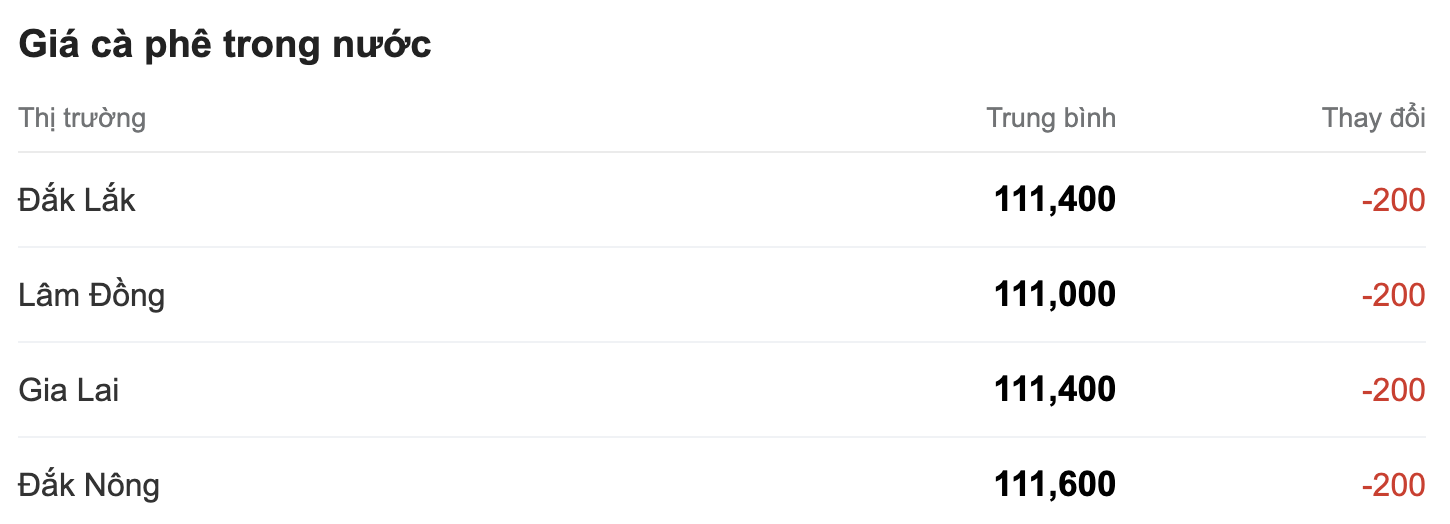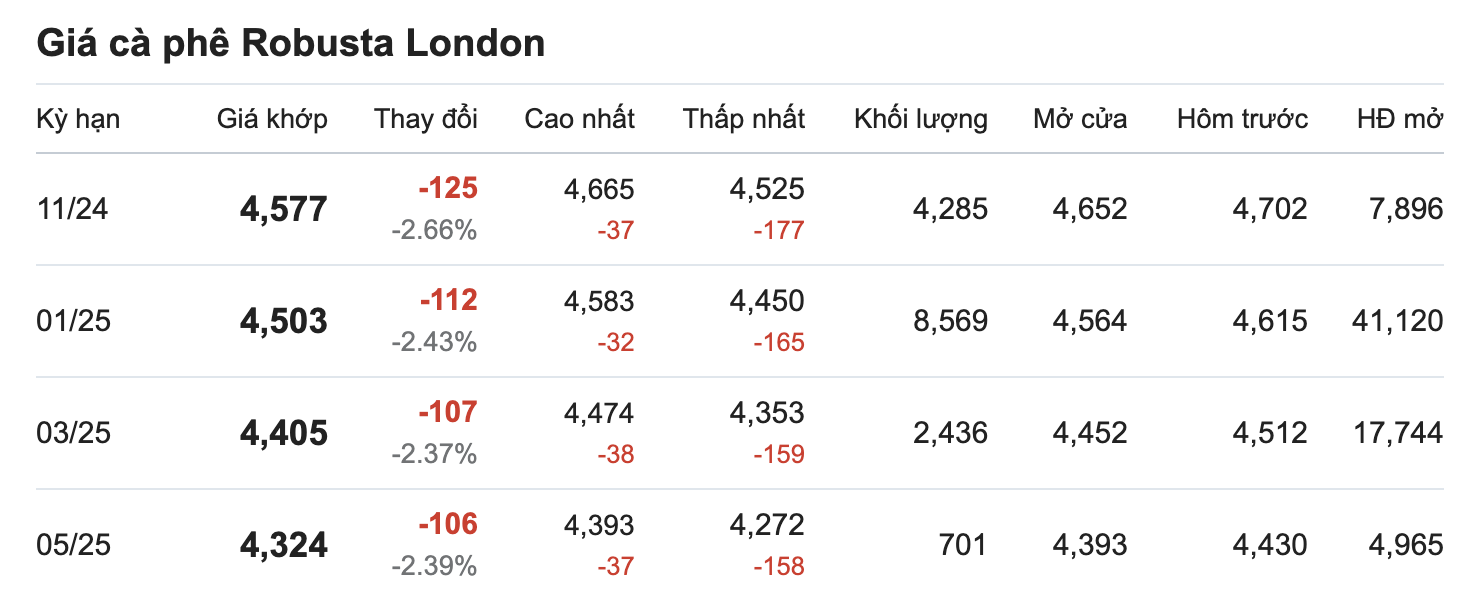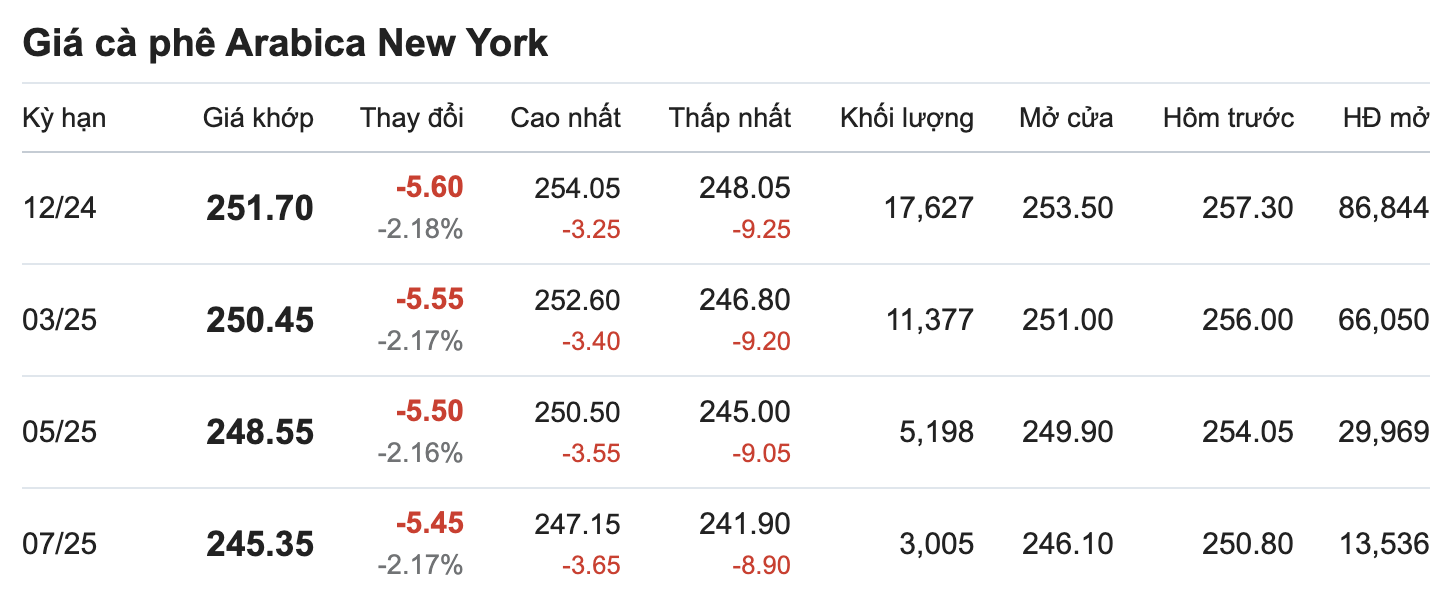As of 11:30 a.m. today (October 22), the domestic and international coffee markets have had unexpected developments compared to the closing price, with an average decrease of VND200/kg, causing prices to fluctuate between VND111,000 - VND111,600/kg. The average coffee purchase price in the Central Highlands provinces is VND111,500/kg.
In Dak Lak province, the coffee purchase price today is 111,400 VND/kg, down 200 VND/kg compared to the first day of the week.
Similarly, Gia Lai province purchased coffee at the same price as today in Dak Lak province, up slightly by 200 VND/kg.
Meanwhile, Lam Dong is still the province with the lowest coffee purchasing price in the Central Highlands. Coffee prices in this region decreased by VND200/kg, currently listed at VND111,000/kg.
Meanwhile, Dak Nong province recorded a slight decrease compared to yesterday's closing price, standing at 111,600 VND/kg.
Thus, in the past 2 months, domestic coffee prices have returned to their lowest level.

For the world market, the London and New York exchanges were dominated by red. At the end of the most recent trading session, the price of Robusta coffee in London, the November 2024 delivery period decreased by nearly 3% (equivalent to 125 USD/ton), reaching 4,577 USD/ton. In addition, the January 2025 delivery period also decreased by 2.43% (equivalent to 112 USD/ton), listed at 4,503 USD/ton.

On the New York Stock Exchange, the price of Arabica coffee for December 2024 delivery fell 5.60 cents/lb to 251.70 cents/lb. The contract for March 2025 delivery fell less, 5.55 cents/lb, to 250.45 cents/lb.

In the growing region of Brazil - the world's number 1 coffee supplier, continuous rain has appeared, so the fear of the next crop failure has been reduced.
In addition, European buyers have delayed their purchases to avoid disruptions due to the European Deforestation Prevention Regulation (EUDR), which will come into effect from 30 December 2024, which has just been officially announced to be delayed by 1 year.
Vietnam, the world’s largest producer of Robusta coffee, is facing a 10% crop decline, while other countries are showing positive signs. In the following seasons, Vietnam’s coffee output will continue to decline due to drought and shrinking planting areas. Farmers in the Central Highlands are gradually shifting to other economic crops.
Therefore, local authorities and the agricultural sector are making efforts to mobilize farmers to apply technical measures to ensure good yield and quality of the harvest.











